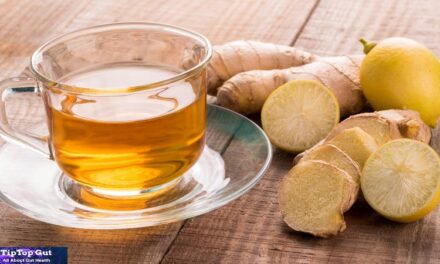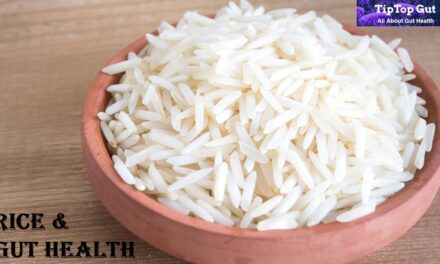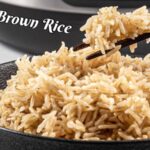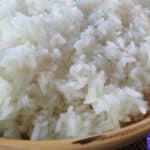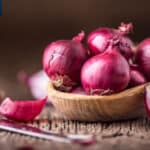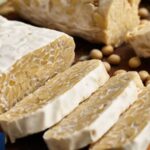If you’re frequently suffering from digestive issues such as constipation, or stomach upset, you may depend too much on laxatives and other OTC medications to get relief.
Believe or not, the herbal teas are proven to be effective for gut health improvement. Here, we will discuss the best herbal tea for gut health and digestion.
Have You Ever Thought of Making Tea for Gut Health?
The simple act of drinking tea has been utilized for generations and across cultures as the most natural method to improve digestion and the health of your digestive tract.
Certain teas aid in regular bowel movements. Others help to boost your immune system, which allows the body to get rid of gunk which could cause upset in your stomach. A cup of tea everyday teas could be as crucial to your overall wellness routine as the probiotics you take daily. They could also be the ideal choice to get relief from your most difficult digestive symptoms.
We’ll show you how it’s possible by examining the top digestive teas and the studies that support these teas in this article.
Do you frequently look to your hot tea if you need something soothing?
Herbal teas sometimes referred to as tisanes, have been utilized over the years to boost health and wellbeing. You probably have one or two of them within your cupboards, a herb or two in a pot or the garden, or perhaps dried herbs in your spice cupboard.
The active constituents of herbal products are typically studied in isolation, synthesized then incorporated into concentrated medicines. If you think of prescription or non-prescription drugs you’ve tried, there were likely several roots in plants. It was believed that the entire herb was supposed to have a soothing, synergistic effect of restoring equilibrium and helping heal.
The history of herbal teas is long-standing. They are used to improve sleep, improve the immune system, boost the feeling of relaxation, boost digestion, and more. Let’s examine some of the properties of herbs that aid digestion and herbal teas that can help to calm and ease the discomfort of an upset digestive tract, aid in healing, or improve digestion.
Herbal Digestive Qualities of Herbal Tea
An anti-inflammatory feature is how herbs can aid in balancing the body’s natural inflammation response. This is not to be confused with the inflammation-suppressing qualities of pharmaceuticals. Some herbs in this category include Calendula, the chamomile plant, turmeric, lavender, and peppermint. Other herbs include fennel, peppermint, and marshmallow.
Bitter herbs are classified in this manner because they are upset. This bitter taste may help promote digestion by encouraging digestion organs to produce enzymes and other compounds that are required to break down and absorb the nutrients in food. The most well-known bitter herbs are artichoke, chamomile, ginger, dandelion, and Gentian.
Carminative Relaxing to the digestive tract, these herbs can ease spasms of the smooth muscular tissues in the digestive tract and help reduce gas and gastric bloating. Ginger, fennel anise, chamomile, and peppermint are popular carminative herbs.
Demulcent calms and soothes mucus membranes in the GI tract; demulcent herbs can reduce irritation. The best time to use these herbs is in between meals as they create an enveloping layer over inflamed tissues. Licorice Marshmallow, slippery elm, and plantain are all well-known demulcent herbs.
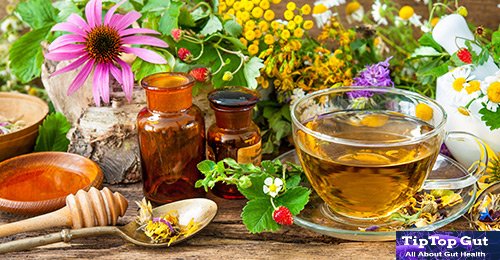
Best Herbal Tea for Gut Health: 15 Best Herbal Teas for Digestive Health
Following are the best herbal teas for gut health and digestion.
1. Chamomile Tea
It is often considered an herbal tea that helps with better sleep and reduces feelings of anxiety; it has digestive benefits too. Chamomile has been used for centuries to ease inflammation within the GI tract. As a result, it’s been referred to as gastroprotection. Chamomile assists in relaxing the smooth muscle tissues of the digestive tract. It is a mild bitter herb too. Studies on chamomile have proven to relieve gas, nausea, and constipation. It also decreased crying and fussiness in infants suffering from colic.
Chamomile is a soothing, naturally sweet herbal tea that is delicious on its own or when blended with other herbs and spices. Chamomile has been shown in a clinical study to reduce symptoms of acid reflux, ward off bloating and gas, and contribute to overall gastrointestinal health. Chamomile is naturally relaxing, and can help to induce both physical and mental wellbeing. This herb has a calming, therapeutic effect when consumed as a tea, and goes great with a dollop of honey!
To aid digestion, Chamomile tea is a great choice to drink after the end of meals. It’s been a long-standing popular choice for herbalists, particularly following big meals.
How to Make Chamomile Tea?
To boil the tea water:
- Heat it to a simmer before removing it.
- Add 1-2 teaspoons of dried flowers to each glass of water.
- Cover the tea and let it steep for five minutes before straining and drinking. If you find the tea too bitter for you, Add some honey to give it sweetness and a soothing effect.
2. Fennel Tea
Although it was cultivated in the Mediterranean region, it has been utilized for centuries in the traditional medical systems throughout the world. The plant is highly valued for alleviating digestive problems such as gas, bloating, or gastric spasms. It is frequently used as a meat substitute and is eaten as a sweet snack following meals or as a tea to relieve the discomfort after eating. Its taste is similar to anise or licorice and is well-matched with other teas discussed in this article.
One study published in BioMed Research International suggest that the Fennel tea also promotes bowel movements and relieves constipation and. However, it’s not understood exactly how and why fennel acts as a laxative. Another study in 86 elderly adults with constipation found that those who drank a fennel tea every day for 28 days had significantly more daily bowel movements than those who received a placebo.
Beyond digestion, it has also been researched for its benefits to metabolism, immunity, respiratory, and hormonal wellbeing. And it’s an excellent way to freshen up your breath.
How to Make Fennel Tea?
Fennel tea is simple to prepare and is likely already in your spice cupboard.
- Grind 2 teaspoons of fennel seeds
- Add to the boiling water
- Remove from the heat Cover and let infuse for 5-10 minutes, after which you can strain the tea and enjoy.
3. Artichoke Tea
Artichoke tea is a beverage made from the leaves of artichokes. It is considered an herbal tea, as it does not contain caffeine. Artichoke tea, known as trà atiso in Vietnamese, is used widely in Vietnam as an herbal alternative to green tea.
One study published in ScienceDirect recommends that artichokes are a great source of fiber which supports your gut health by promoting friendly gut bacteria, reducing your risk of certain bowel cancers, and alleviating constipation and diarrhea.
Artichokes contain a type of fibre called inulin, which is a prebiotic. Unlike probiotics, which contain beneficial bacteria that our digestive systems need, prebiotics are a source of food for the good bacteria already in our guts. This helps to maintain a healthy balance and keeps our digestion running smoothly.
In one study, 12 adults experienced an improvement in gut bacteria when they consumed an artichoke extract containing inulin each day for three weeks. Artichoke extract may also provide relief from symptoms of indigestion, such as bloating, nausea, and heartburn.
Taking artichoke extract regularly also helps to improve the levels of beneficial bacteria in the gut.
How to Make Artichoke Tea?
- Put artichokes in a large pot of water to boil. Use one gallon of water for every three artichokes.
- Once the water begins to boil, lower heat to a simmer and cover with a lid. Cook for one hour.
- Once cooked, remove the artichokes from the boiling water and set them aside. These are perfectly good to eat, so don’t throw them away.
- Strain the tea through a mesh strainer to catch any loose leaves or fibers.
If desired, artichoke tea can be sweetened to taste with your choice of sweetener. Once strained, artichoke tea can be served chilled or hot.
Read More:
Is Ginger Tea Good for Gut Health? Best Science-Based Guide 2022
4. Ginger Tea
It was traditionally used as a cure for nausea Ginger has been extensively studied regarding digestive health. In Ayurveda, a traditional medical practice that originated in India, the ginger plant is referred to as “the universal medicine.”
Perhaps you grew up in a family that had ginger ale or ginger tea, or ginger candy was always available in the event of motion sickness or stomach bugs on journeys in the car. In the traditional usage of ginger to stimulate digestion, ginger is consumed before meals. It’s an ideal tea to drink throughout the day in the colder months as its warming properties can keep you warm.
The primary effect on ginger’s digestion is believed to be its anti-inflammatory effect; 3 ginger is also carminative. According to clinical studies, the consumption of ginger is linked to fewer stomach cramps, reduction of vomiting and nausea, and less gas and gastric bloating. Whether fresh or dried or powdered, juiced or steeped, ginger is a herb that has a lot of potentials.
Compounds in ginger, known as gingerols and shogaols, can help stimulate stomach contractions and emptying. Thus, the spice may help with nausea, cramping, bloating, gas, or indigestion.
A large review found that taking 1.5 grams of ginger daily reduced nausea and vomiting caused by pregnancy, chemotherapy, and motion sickness. Another study in 11 patients with indigestion found that taking supplements containing 1.2 grams of ginger significantly shortened stomach emptying time by nearly 4 minutes, compared to a placebo. You may also read the benefits of ginger for gut health here: Is Ginger Good for Gut Health? 18 Amazing Benefits of Ginger!
How to Make Ginger Tea?
Fresh ginger is among the most straightforward teas you can make.
- Slice a 1-inch piece of fresh ginger
- Add to the water in a pot, and let it boil for 10 minutes
- Remove the ginger, and let the tea cool slightly before drinking.
5. Green Tea
Green tea has always been regarded as somewhat of a miracle worker, especially regarding gut health. The drink, which has long been popular in Asian countries, is lauded as a superfood due to its purported health benefits
Green tea helps improving gut health by populating healthy bacteria in the intestines. Research conducted by Ohio State University suggested that green tea can encourage the growth of good gut bacteria, leading to a litany of benefits, including lowering the risk of obesity. It can also result in less permeability in the intestinal wall, a condition which is often referred to as “leaky gut”.
A study by Yan and colleagues reveals that green tea is rich in polyphenols, helping the body improve its digestive process. To the uninitiated, polyphenols are digestive compounds found in the tea plant. It’s no wonder green tea is such a popular ingredient in a variety of other health and wellness beverages.
According to Dr. Richard Bruno, the importance of gut health for humans is exemplified by our research and suggests that dietary factors such as green tea that are rich in catechins can help to reduce the risk of glucose intolerance by limiting gut inflammation and improving gut integrity.
How to Make Green Tea?
- Boil water in a pot
- Add green tea leaves
- Strain the tea into your cup
- Add sweetener according to your taste
Read More:
Is Green Tea Good for Gut Health? Latest Study Shocked Me (2022)
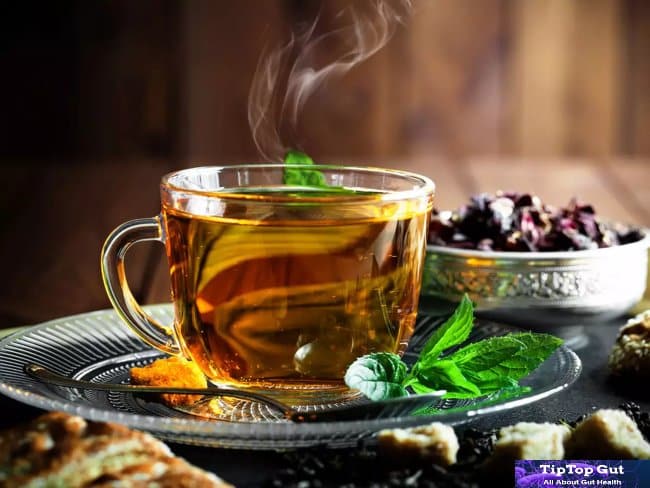
6. Licorice Tea
Another herb used for centuries as a remedy to treat GI issues, licorice is believed to possess demulcent, anti-inflammatory, and carminative effects, helping to alleviate symptoms like gas and gastric. A placebo-controlled, double-blind study conducted on patients suffering from functional dyspepsia licorice two times a day resulted in a significant reduction in symptoms after fifteen and thirty days compared to a control.
Licorice imparts a pleasantly sweet taste to any tea its added to, making it the perfect after-dinner tea when you’re looking for something to soothe your stomach and sate your sweet tooth. Licorice has been shown to help ease the symptoms of digestive problems and promote good digestive health. While licorice has a variety of health benefits, it’s recommended to consume licorice in moderation to avoid any adverse effects.
Licorice is most likely to be popular in its deglycyrrhizinated (DGL) form in chewable tablets. Glycyrrhizin is one of the components in the licorice plant that may cause an increase in blood pressure for some people after consumption in huge quantities, which is why the DGL form was designed to reduce the risk. Licorice root in its traditional form is considered safe for low doses, but this is one of the herbs you could want to buy commercially to know the amount you’re taking in per cup.
How to Make Licorice Tea?
To make licorice tea:
- Boil water
- Add 1 tablespoon of tea made from licorice per 8-10 ounces
- Let it sit for 5-10 mins, after which you can strain it and drink.
7. Marshmallow Tea
Marshmallow (the herb and not the candy) has been used to treat ailments for over 2500 years. When combined with water, the mucilage found in the marshmallow’s leaves and roots creates an oily gel that can cover and soothe irritations to tissues. The demulcent nature of marshmallows makes it ideal to use them in between meals and away from other drugs.
Studies suggest that the polysaccharides from marshmallow root, such as mucilage, can help stimulate the production of mucus-producing cells that line your digestive. In addition to increasing mucus production and coating your throat and stomach, marshmallow root may have antioxidant properties that help decrease levels of histamine, a compound released during inflammation. As a result, it may protect against ulcers.
Another study concluded that marshmallow tea was highly effective at preventing stomach ulcers caused by nonsteroidal anti-inflammatory drugs (NSAIDS).
Along with soothing irritation as well as inflammation-prone GI tissue, marshmallows can aid in soothing the sore throat.
How to Make Marshmallow Tea?
While most GI teas are hot in their infusion, marshmallows can be prepared by cold infusion, which provides cooling to irritated digestive tracts. To make a cold marshmallow infusion:
- Add 1 tablespoon of crushed marshmallow roots per cup in the glass container
- Cover it, let it infuse, and then extract mucilage for up to eight hours before drinking.
8. Peppermint Tea
One of the most well-known of the carminative plants that are widely adored, peppermint is loved by everyone. When it is used as a spice, brewed into an herbal tea, applied topically, or used to your diet as a breath freshener, peppermint’s many uses and universal appeal make it an attractive herb that can be grown in your garden and commercial cultivation.
Peppermint can relax the smooth muscle of your GI tract, decreasing the risk of gas and cramping. It also stimulates the secretion of your body’s digestive enzymes. This helps reduce the feeling of fullness following meals and reduces various GI symptoms.
Some animal and human studies have shown that menthol, a compound in peppermint, improves digestive issue. Peppermint oil is sometimes used to improve irritable bowel syndrome (IBS), an inflammatory condition that affects the large intestine and can cause stomach pain, bloating, gas, and other unpleasant symptoms. A 4-week study in 57 people with IBS found that 75% of those who took peppermint oil capsules twice per day reported improvements in symptoms, compared with 38% of those in the placebo group.
Recently, peppermint oil has been the subject of numerous studies that have investigated its use in treating irritable bowel syndrome as well as the respiratory tract, gastrointestinal health as well as pain management. Historically, the tea of peppermint has been widely praised as a delicious drink in its own right and to help support digestion.
How to Make Peppermint Tea?
To make the perfect cup of peppermint tea:
- Add 1 teaspoon of dried peppermint leaves or 15 mint leaves fresh in boiling water
- Switch off your heat and cover it
- Let it infuse for about 10 minutes. The leaves should be strained, and added honey drizzles to sweeten the taste if you like.
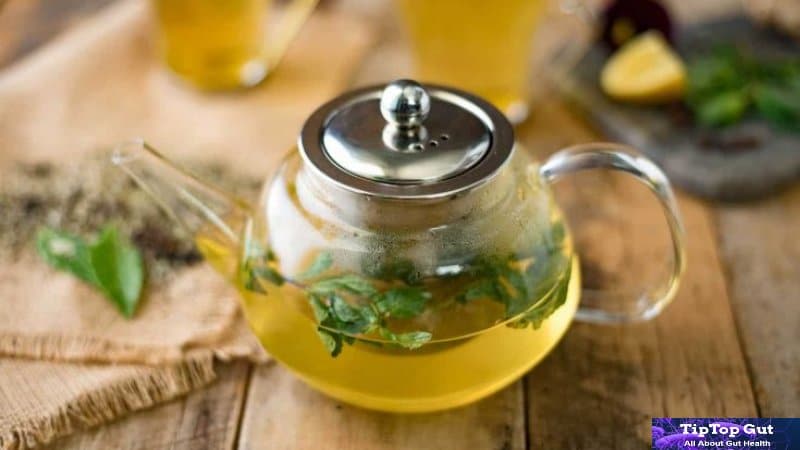
9. Black Tea
Aside from water, black tea is one of the most consumed beverages in the world.
It comes from the Camellia sinensis plant and is often blended with other plants for different flavors, such as Earl Grey or chai. Black tea is rich in antioxidants that may provide benefits including improved heart and gut health, lowered “bad” LDL cholesterol, blood pressure, and blood sugar levels.
While some of the bacteria in your gut are beneficial for your health, some are not. A study published in the Journal of Translational Medicine have suggested that the type of bacteria in your gut may play an important role in reducing the risk of certain health conditions, such as inflammatory bowel disease, type 2 diabetes, cardiovascular disease, obesity, and even cancer.
The polyphenols found in black tea may help maintain a healthy gut by promoting the growth of good bacteria and inhibiting the growth of bad bacteria.
In addition, black tea may contain antimicrobial properties that kill off harmful substances and improve gut bacteria and immunity by helping repair the lining of the digestive tract.
How to Make Black Tea?
Not only is black tea good for your gut health, it’s also simple to make.
- Boil water in a pot
- If using black tea bags, simply add a tea bag to a mug and fill it with the hot water.
- If using loose leaf tea, use 2–3 grams of tea leaves for every six ounces of water in a strainer.
10. Angelica Root Tea
Angelica is a flowering plant that grows all over the world. It has an earthy, slightly celery-like taste. While all parts of this plant have been used in traditional medicine, angelica root — in particular — may aid digestion.
Some animal studies have shown that a polysaccharide in angelica root may protect against stomach damage by increasing the number of healthy cells and blood vessels in the digestive tract. For this reason, it may also help fight intestinal damage caused by oxidative stress in those with ulcerative colitis, an inflammatory condition that causes sores in the colon.
What’s more, one test-tube study on human intestinal cells found that angelica root stimulated the secretion of intestinal acids. Therefore, it may help relieve constipation. These results suggest that drinking angelica root tea may promote a healthy digestive tract, but no human studies have confirmed this.
How to Make Angelica Root Tea?
To make angelica root tea:
- Add 1 tablespoon (14 grams) of fresh or dried angelica root to 1 cup (250 ml) of boiled water.
- Let it steep for 5–10 minutes before straining and drinking it.
Read More:
Best Over the Counter Probiotic for Gut Health: Easy Guide 2022
11. Gentian Root Tea
Gentian root comes from the Gentianaceae family of flowering plants, which grows worldwide. Different varieties of gentian root have been used to stimulate appetite and treat stomach ailments for centuries.
The effects of gentian root are attributed to its bitter compounds, known as iridoids, which can increase the production of digestive enzymes and acids.
What’s more, one study published on NCBI in 38 healthy adults found that drinking water mixed with gentian root increased blood flow to the digestive system, which may help improve digestion.
How to Make Gentian Root Tea?
To make gentian root tea:
- Steep 1/2 teaspoon (2 grams) of dried gentian root in 1 cup (250 ml) of boiled water for 5 minutes before straining.
- Drink it before meals to aid digestion.
12. Dandelion Tea
Dandelions are weeds from the Taraxacum family. They have yellow flowers and grow worldwide, including in many people’s lawns.
Animal studies have shown that dandelion extracts contain compounds that may promote digestion by stimulating muscle contractions and promoting the flow of food from the stomach to the small intestine.
A study in rats found that dandelion extract also helped protect against ulcers by fighting inflammation and decreasing the production of stomach acid.
Hence, drinking dandelion tea may promote healthy digestion. However, research in humans is limited.
How to Make Dandelion Tea?
To make dandelion tea:
- Combine 2 cups of dandelion flowers and 4 cups of water in a saucepan.
- Bring the mixture to a boil, then remove it from heat and let it steep for 5–10 minutes.
- Strain it through a colander or sieve before drinking.
13. Calendula Tea
The vibrant yellow and orange Calendula blooms are an absolute favorite in the garden because of their ability to attract aphids away from plants. Calendula, also known as marigold, has been used for culinary and medicinal applications for thousands of years. The plant is known for its ability to promote regeneration; Calendula is commonly found in skin care products designed to soothe skin irritation.
The Calendula plant has historically been utilized as a tea to ease the irritation of GI tissues.
How to Make Calendula Tea?
For making Calendula tea:
- Ensure the water is boiling before removing it from the heat.
- Add 2 teaspoons of dried flowers to each glass of water.
- Cover and let it steep for about three to six minutes.
- Filter and enjoy.
While Calendula flowers smell delicious but they make bitter and spicy tea. A slower steep will give the tea a milder flavor. It is also possible to include a bit of honey for an uplifting sweetness.
14. Senna Tea
Senna is an herb that comes from flowering Cassia plants. It contains chemicals called sennosides, which break down in the colon and act on smooth muscle, promoting contractions and bowel movements.
Studies have shown that senna is a highly effective laxative in both children and adults with constipation from different causes. One study in 60 people with cancer, 80% of whom were taking opioids that can cause constipation, found that more than 60% of those who took sennosides for 5–12 days had a bowel movement on over half of those days.
Thus, senna tea may be an effective and easy way to find relief from constipation. However, it’s best to only drink it on occasion so you don’t experience diarrhea.
How to Make Senna Tea?
To make senna tea:
- Steep 1 teaspoon (4 grams) of dried senna leaves in 1 cup (250 ml) of boiled water for 5–10 minutes before straining.
15. Black Tea
Black tea comes from the Camellia sinensis plant. This tea boasts several healthy compounds. These include thearubigins, which may improve indigestion, and theaflavins, which act as antioxidants and may protect against stomach ulcers.
One study in mice with stomach ulcers found that 3 days of treatment with black tea and theaflavins healed 78–81% of ulcers by suppressing inflammatory compounds and pathways. Another study in mice found that black tea extract improved delayed gastric emptying and resulting indigestion caused by a medication.
Therefore, drinking black tea may help improve digestion and protect against ulcers, but more research is needed.
How to Make Black Tea?
To make black tea:
- Steep a black tea bag in 1 cup (250 ml) of boiled water for 5–10 minutes before drinking it.
- Add sweetener of your choice.
- You can also use loose black tea leaves and strain the tea after steeping.
What Can Tea Do to Your Stomach?
The new study’s findings show that black tea polyphenols that are too massive to be absorbed by the slight intestine increase the growth of gut microbes and the production of short-chain fatty acids, a kind of bacterial metabolites that have been found to affect the energy metabolism inside the liver.
Can Green Tea Improve the Health of Your Digestive Tract?
Consuming extracts of green tea for four weeks helps improve metabolic syndrome, reducing the risks of hypertension, weight gain, and inflammation. The advantages of drinking tea with green leaves are well acknowledged. However, new research is concluding that drinking green tea extract may help improve the health of your gut.
Read More:
Best Herbs for Gut Health: Boost Gut Health With Herbs (2022)
How to Restore Gut Health After Antibiotics: 5 Best Ways Backed by Science
Best Probiotic for Gut Health and Weight Loss: An Ultimate Guide 2022
Best Probiotic for Vaginal and Gut Health: The Best Guide 2022
Are Tomatoes Bad for Your Gut Health? Truth Unveiled! 2022
Scientific Studies and References
- Solmaz Asnaashari, Siavash Dastmalchi & Yousef Javadzadeh (2018) Gastroprotective effects of herbal medicines (roots): International Journal of Food Properties
- Journal of the American Medical Directors Association
- Giacosa A, Morazzoni P, Bombardelli E, Riva A, Bianchi Porro G, Rondanelli M. Can nausea and vomiting be treated with ginger extract? Eur Rev Med Pharmacol Sci. 2015 Apr;19(7):1291-6. PMID: 25912592.
- Koo MW, Cho CH. Pharmacological effects of green tea on the gastrointestinal system. Eur J Pharmacol. 2004 Oct 1;500(1-3):177-85. doi: 10.1016/j.ejphar.2004.07.023. PMID: 15464031. https://pubmed.ncbi.nlm.nih.gov/15464031/
- ScienceDirect
- Bahrami HR, Hamedi S, Salari R, Noras M. Herbal Medicines for the Management of Irritable Bowel Syndrome: A Systematic Review. Electron Physician. 2016 Aug 25;8(8):2719-2725. doi: 10.19082/2719. PMID: 27757180; PMCID: PMC5053451.



